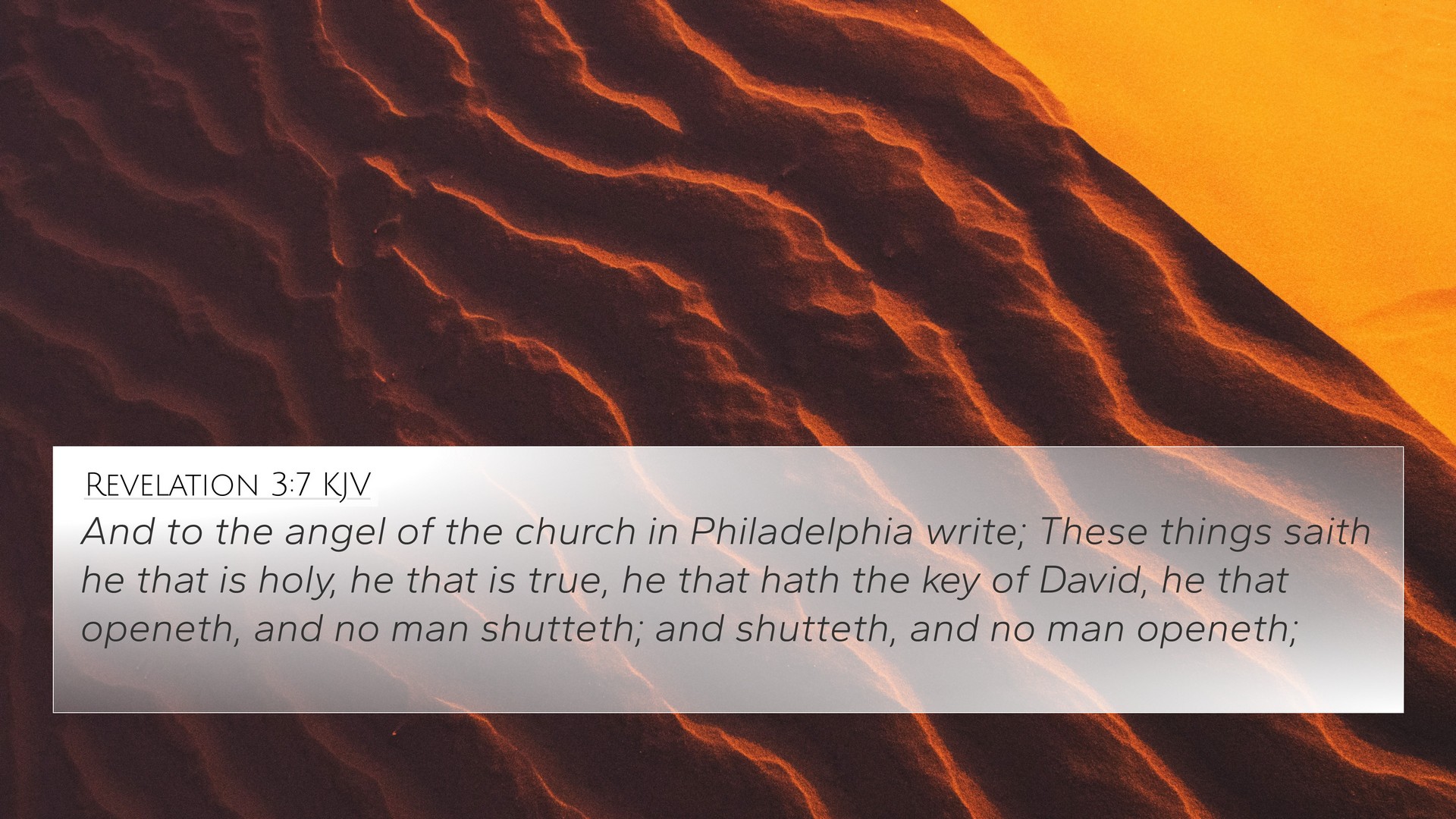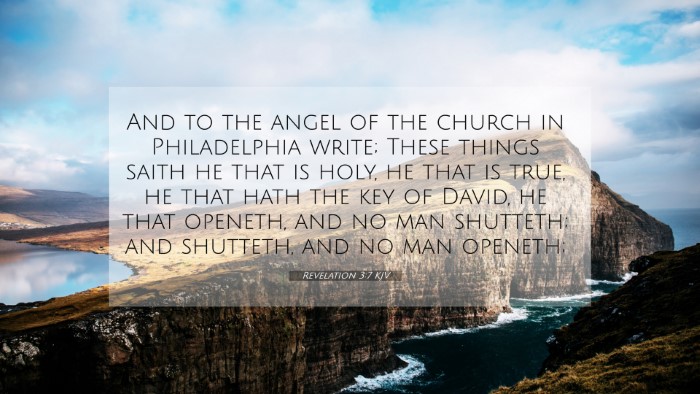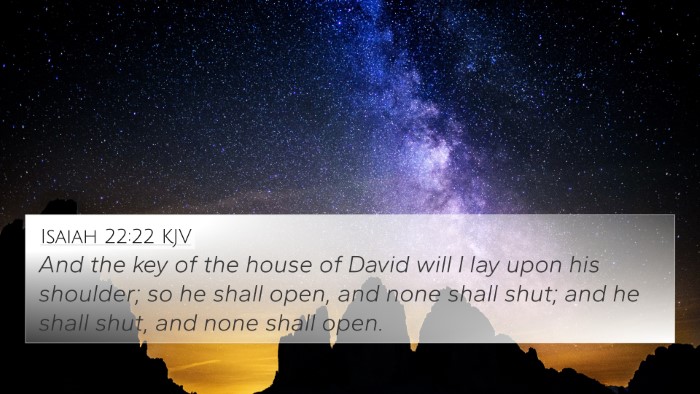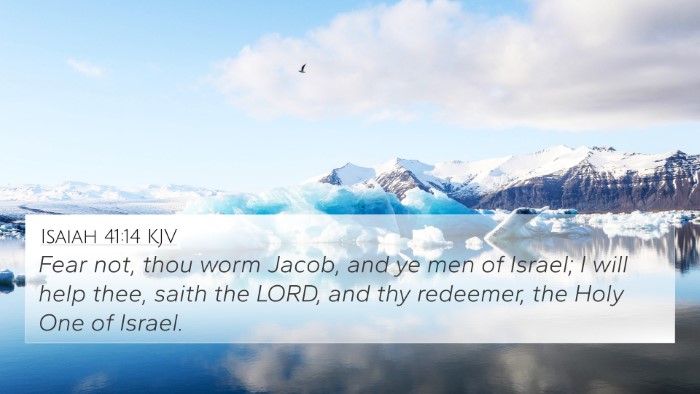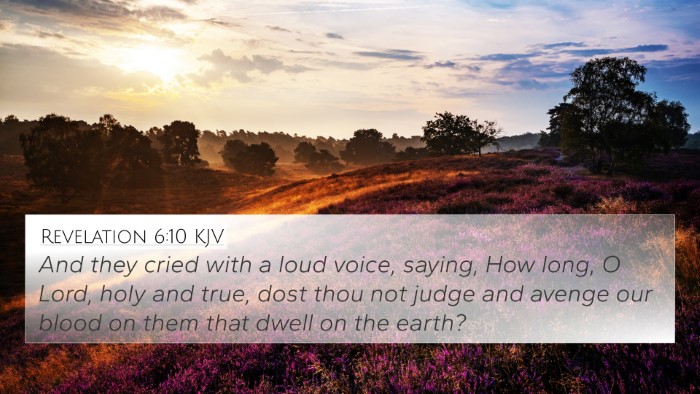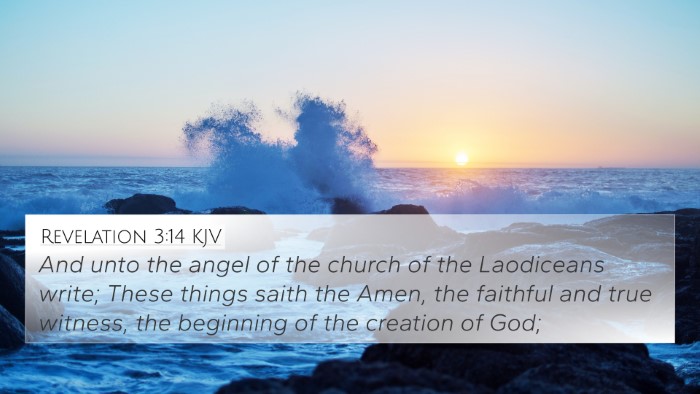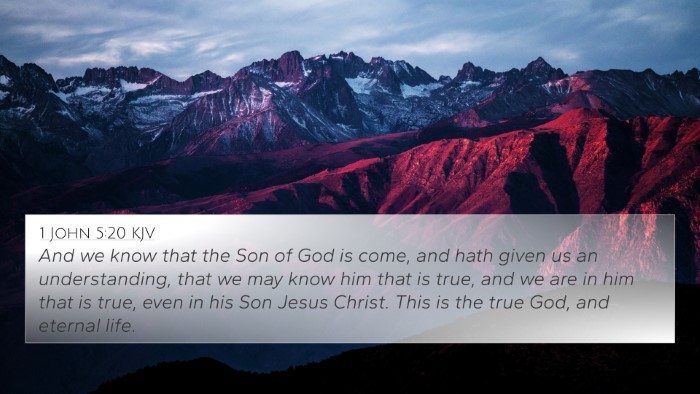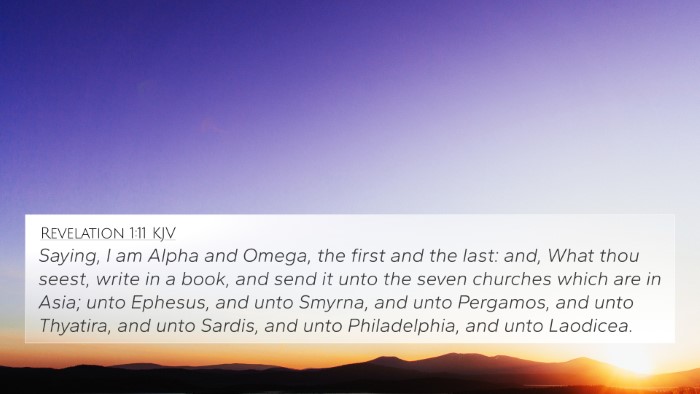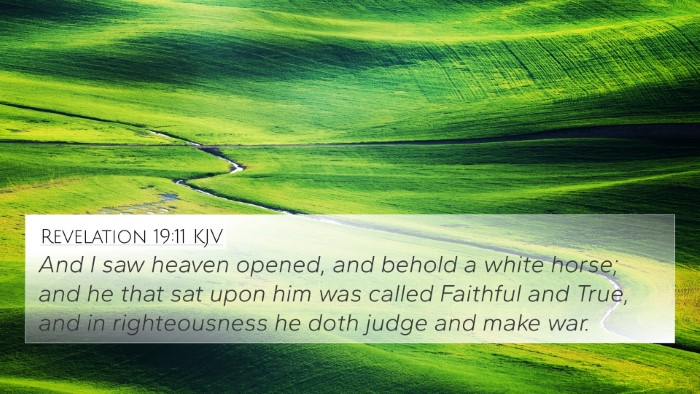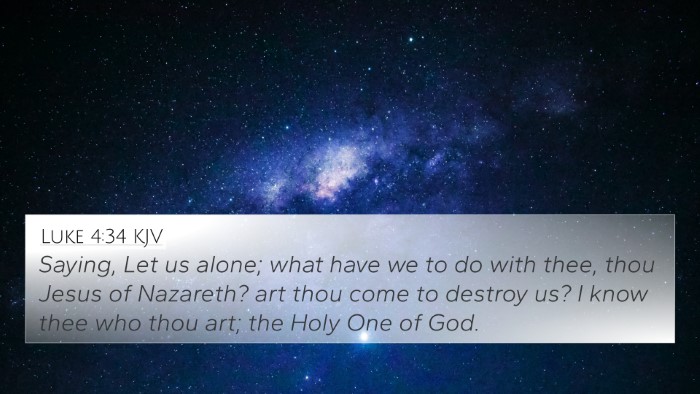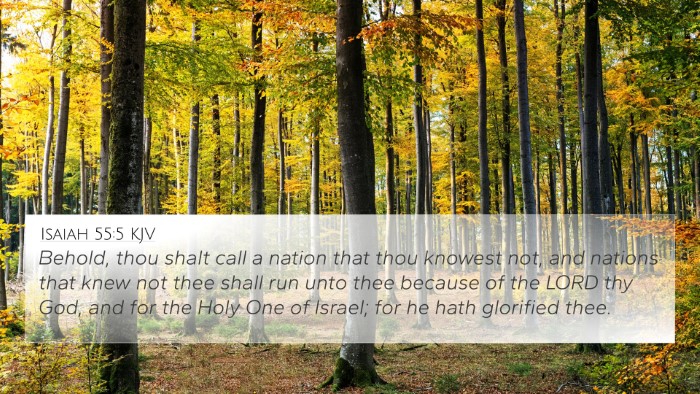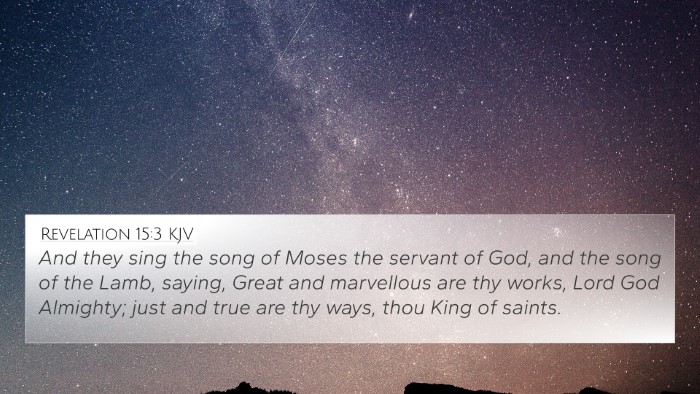Meaning and Interpretation of Revelation 3:7
Revelation 3:7 (KJV): "And to the angel of the church in Philadelphia write; These things saith he that is holy, he that is true, he that hath the key of David, he that openeth, and no man shutteth; and shutteth, and no man openeth."
This verse addresses the church in Philadelphia, emphasizing the authority of Christ, recognized as the one who is holy and true. It underscores His sovereign power as the keeper of the key of David, indicating His control over access to salvation and service.
1. Christ as Holy and True
The descriptors "holy" and "true" serve to remind believers of the nature of Christ. As noted in Matthew Henry's Commentary, these attributes affirm His divinity and righteousness, demonstrating that His words can be trusted and His actions, just.
Albert Barnes adds that these terms further evoke the sense of Christ's unique position in contrast to the failed leaders of the time, providing comfort to the Philadelphia church amidst persecution and challenges.
2. The Key of David
The "key of David" implies authority and control over the kingdom of God. Matthew Henry notes that the keys open the door to both salvation and the heavenly kingdom. This imagery connects with Isaiah 22:22, referencing authority passed from Eliakim, highlighting the continuity of God's salvific purpose throughout Scripture.
3. Opening and Shutting
The phrases "he that openeth, and no man shutteth; and shutteth, and no man openeth" imply the absolute sovereignty of Christ over the church and its mission. Adam Clarke suggests that this signifies the confidence believers can have in God's promises and provisions when they feel restricted or barred from ministry opportunities.
4. Cross-References
Revelation 3:7 resonates with various other scriptures that emphasize God's authority, sovereignty, and the identity of Christ. Here are notable cross-references:
- Isaiah 22:22: Reflects the imagery of keys of authority.
- Matthew 16:19: Jesus gives Peter the keys of the kingdom of heaven.
- John 10:9: Jesus as the door through which the sheep enter.
- Acts 4:12: Salvation is found in no one else but Jesus.
- Philippians 2:10-11: All will acknowledge Christ's lordship.
- Hebrews 10:19-22: Confidence to enter the holy presence.
- Revelation 1:18: Christ has the keys of death and Hades.
- Revelation 3:20: Christ knocking on the door of the heart.
- Luke 11:52: The woe to those who do not have access to knowledge.
- Revelation 21:27: Only those whose names are written in the Lamb's book of life will enter the new Jerusalem.
5. Thematic Connections
Connections between these verses highlight a common theme of access to God and the definitive authority of Christ. The keys not only represent access but also a relational dynamic encouraging believers to trust in His capabilities.
6. Application for Today's Believers
Understanding Revelation 3:7 allows contemporary readers to appreciate the ongoing relevance of Christ's authority and provision. According to Adam Clarke, acknowledging Christ's control can instill confidence during difficulties in faith. Believers are encouraged to lean into Him for strength and to recognize His power to open doors of opportunity in ministry and personal growth.
7. Practical Tools for Bible Cross-Referencing
Engaging in cross-referencing enhances biblical understanding and thematic exploration. Here are useful tools for connecting Bible verses:
- Bible Concordance: A helpful index for locating words and themes.
- Bible Cross-Reference Guide: Resources provide cross-reference systems.
- Online Bible Study Tools: Various websites offer searchable databases for quick referencing.
- Bible Reference Resources: Many commentaries include cross-references for deeper study.
- Bible Application Study Guides: Designed for applying biblical principles to life.
8. Conclusion
Revelation 3:7 reminds us of the significance of Christ's authority in both the past and present. By studying its connections with other scriptures, believers gain insights that support their faith and provide assurance of God's providence. This contributes greatly to systematic theology and understanding of the integrated message of the Bible.
Engaging in comparative Bible verse analysis leads to deeper understanding and appreciation of scripture, reinforcing the thematic connections that interlace both the Old and New Testaments.
